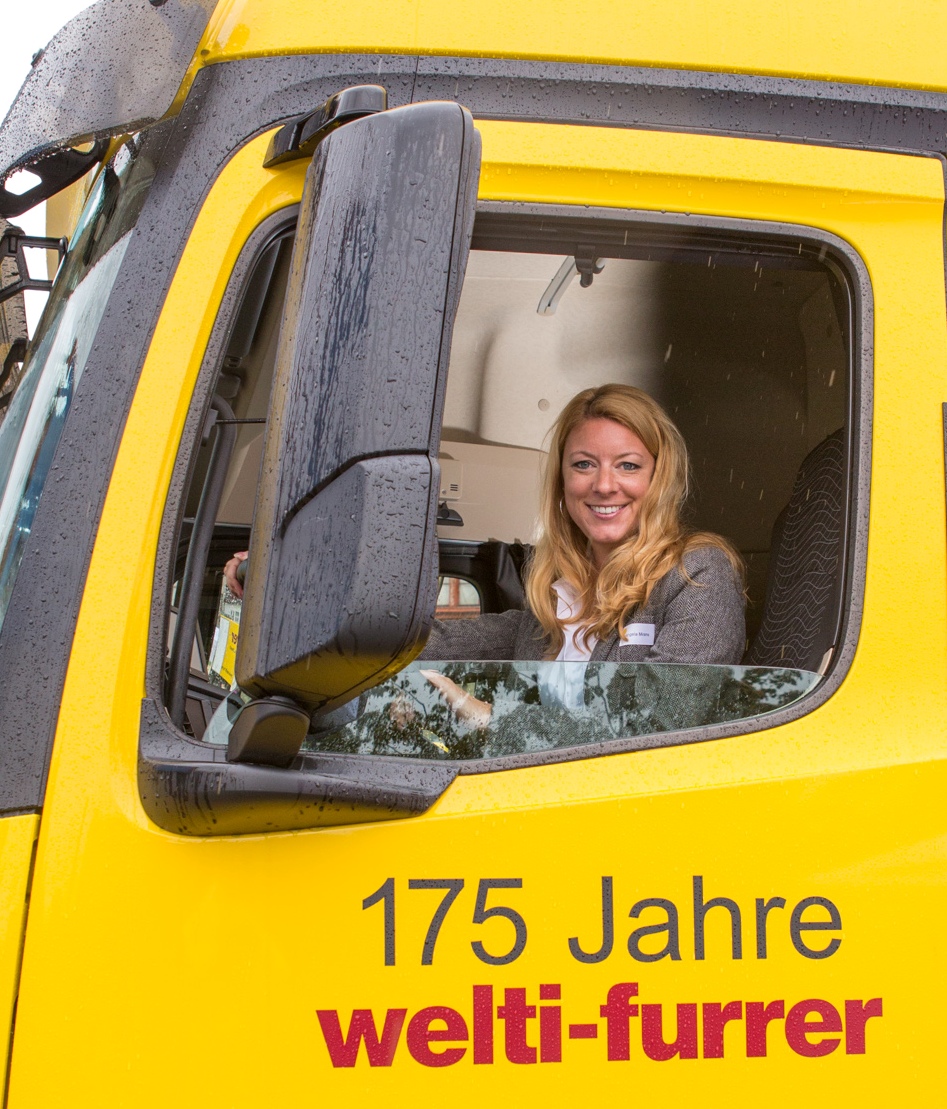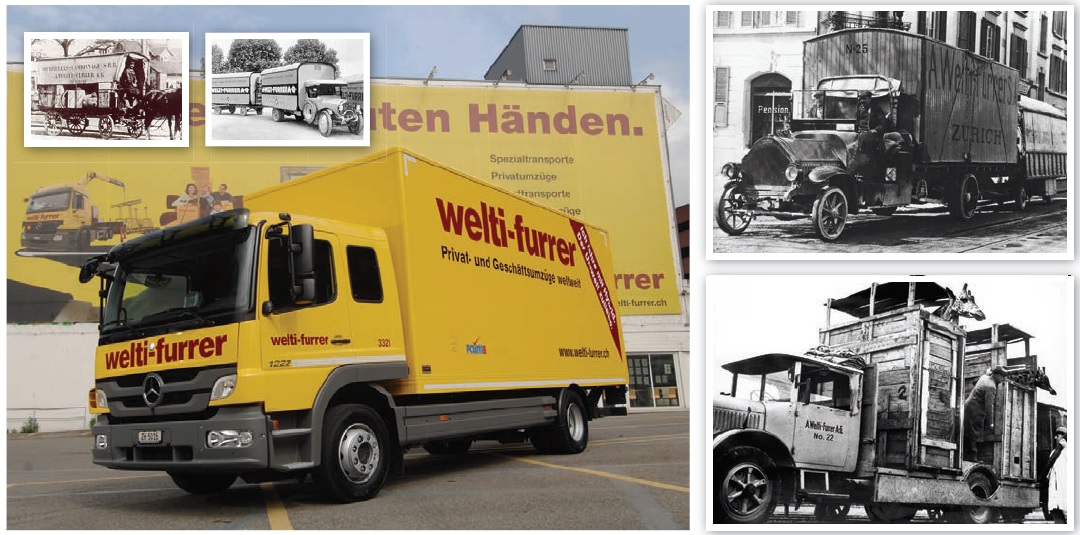Steve Jordan talks to Angie Mirams from Welti-Furrer: Switzerland’s oldest moving company.

It was in 1838 the same year that Brunel’s SS Great Western first put to sea, that Jakob Furrer started his moving company in Zurich. Close on 180 years later the company is still going strong as a major force in the Swiss and international moving industry.
Angie Mirams has been in the moving industry for 17 years, first with Kehrli + Oeler Ltd and for the last nine years with Welti-Furrer. She has recently taken over as head of the international department having previously specialised in sales and marketing.
“When Mr Furrer started it was a general haulage company using horses and carts,” she explained. “He would transport anything, including household goods, and was always based in the heart of Zurich.”
Albert Welti came along much later. He married Jakob’s daughter and joined the company in 1880. He was an artist and illustrator for the company. He brought with him new ideas for a dynamic world in which people were increasingly mobile. Together they built the company and became one of the first in Switzerland to venture across the border to Germany thereby performing international moves. Today the company has five fully-equipped locations in Zurich, Bern, Windisch, Baar, Zug and Liestal,Basel.
 “All five offices are in the German part of Switzerland,” said Angie. “There is a divide between French and German side, they are like two countries. Even though Switzerland is very small the mentality, people and language are different so for a company in the German part to open an office in Geneva or Lausanne it would never work unless you have someone there from the region.” Welti-Furrer competes for large international accounts of course, but domestically the two parts of the country keep to themselves. That said, the company has its trading partners in the French part of Switzerland and so can offer a nationwide service.
“All five offices are in the German part of Switzerland,” said Angie. “There is a divide between French and German side, they are like two countries. Even though Switzerland is very small the mentality, people and language are different so for a company in the German part to open an office in Geneva or Lausanne it would never work unless you have someone there from the region.” Welti-Furrer competes for large international accounts of course, but domestically the two parts of the country keep to themselves. That said, the company has its trading partners in the French part of Switzerland and so can offer a nationwide service.
Perhaps unusually nowadays the company does not have its own relocation department. It has relocation partners but its core business is domestic and international removals. “We started working for relocation companies many years ago and have now made a decision not to compete in their market,” said Angie. “The relocation companies still need a reliable and independent partner to work with for the moving of their customers’ goods. It’s an important part of our work. Why would we want to open our own division and lose that?”
Being in Switzerland the traffic is mainly to and from the world’s financial centres of Germany, Singapore, the UK and the USA. Despite the high cost of labour Welti-Furrer has not taken the option of importing packing services from cheaper Germany. All its staff live and work in Switzerland. European haulage is, however, subcontracted to German companies that operate swap-body vehicles in Welti-Furrer livery. “The only way you can tell that the vehicle is not from Switzerland is the number plate,” said Angie. During the high season the company employs upwards of 200 staff, many of whom are engaged in the moving of office equipment.
“Office moving has become very important for us,” said Angie. “We manage the whole process for our customers including the cleaning and storage of furniture, and the efficient recycling and disposal of equipment. We have just achieved ISO 14001 for the quality of our environmental services.”
As with all companies in Switzerland its international movements have to negotiate a border and goods have to be cleared through customs. But rather than being a handicap Angie sees this as an advantage. “You don’t need a license to move people’s goods in Switzerland. But as soon as you cross the border you need the additional knowledge and people are willing to pay the additional costs for the service that we are providing.”
Moving to Switzerland, by international standards however, is relatively straightforward. But all nations have their little ways – their traditions. In a country known worldwide for clocks and watches it’s unsurprising that the Swiss are strict on timing. For example, most countries don’t have set times for breaks; but they do in Switzerland. “It can come as a surprise to people when they come here from a different culture, but that’s just our way. At home it’s lunch at 12:00pm and dinner at 6:00pm. Best not be late!”
Welti-Furrer was taken over by the Knecht Group in 1993 with Philipp Vassalli appointed as its CEO just three years ago.

Photos: Middle left: Angie Mirams; above: a present day Atego Hybrid truck, with assorted older examples of vehicles used by Welti-Furrer throughout its long history.
Click here to see the next Editor's Pick